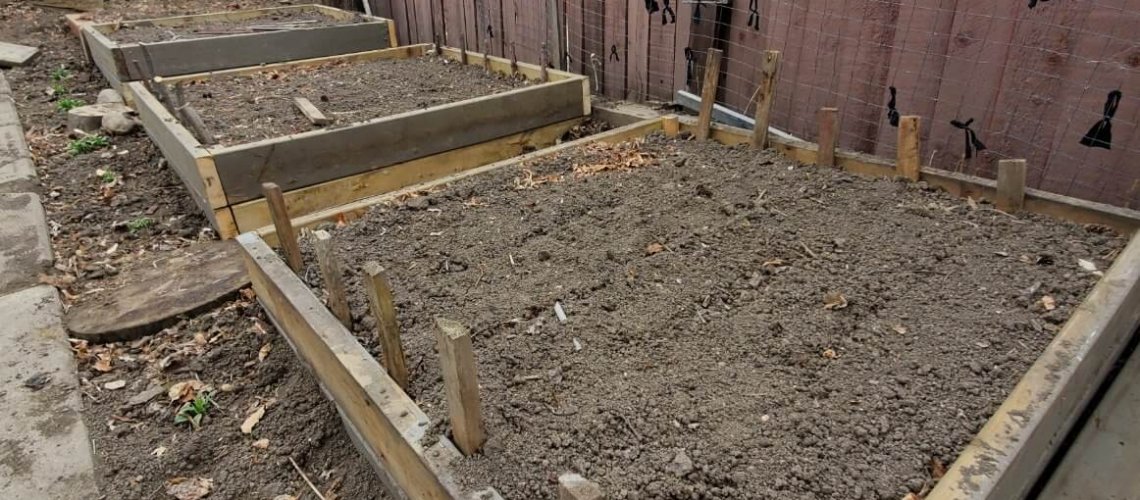Gardening is my passion, and, as Frank Sinatra sang, I do it “My Way.” Gardening is a labor of love, and a lifetime challenge, intellectually and physically. I learn from other gardeners, books, magazines, the internet, and above all from trial and error. The challenge is always to grow bigger, tastier vegetables and prettier flowers, while always trying to minimize the damage to the environment. My produce tastes so much better than store-bought produce. I am contributing to reducing carbon emissions by reducing the costs of growing, processing, transporting, and selling food. And I provide a bird and insect (even the pests) friendly environment.
It was only after I retired that I took gardening seriously. Ten years ago, I was reading a book on gardening and read about double digging. This is a process of digging out a trench, laying the soil to one side, then digging the trench another shovel depth deeper and placing the first layer on the bottom and the second layer on top. This puts all the surface weed seeds at the bottom where they are unlikely to germinate. It also creates a much deeper layer of soil for the roots to grow in, keeping in mind that most vegetable’s roots go down at least four feet, or more than one metre.
Raised beds were my next new experience. I tried the idea and build two, and soon realized three things: it was easier planning where to plant, it was easier weeding as I did not have to step on the garden and compact the soil. And I could get on the garden at any time even when it was wet. The walls of my raised beds are up to 12 inches high, four feet wide and about 20 feet long. They worked so well that I now have four large raised beds and three smaller ones.
Then I discovered the broad fork, a four tined fork with eight-inch long tines that you simply insert into the soil and twist the fork so that the compacted soil breaks up, allowing air and water to enter more freely. This reduced my soil preparation by at least 60%. Not bad as I get older and have less stamina. I can prepare one of my large raised beds, including raking, in about 20 minutes instead of 60.
No-till was my next discovery. Now it takes me two minutes per bed, just raking the top into a smooth, fine-grained soil, ready for seeding. No-till works well on raised beds because of the limited compaction of the soil. But there is an even more compelling reason for no-till. Down in the dirt are millions of organisms, fungi, bacteria, beneficial microbes, earthworms, and other creatures. The network of fungi, thin thread-like tentacles, brings water to plants, who in turn share some of their sugars, each benefiting the other. Beetles shred organic matter. Worms eat the organic matter and excrete worm casings that increase the fertility of the soil. Bacteria work with the roots of legumes to form nitrogen. Spading or broad forking breaks up these interactions and as a result plants do not grow as well. I have noticed no change in the quality or quantity of produce. And, I have saved a lot of physical effort in preparing my raised bed for seeding. I do broad any area that has become compacted. The rest is no-till.
My next installment will be on composting and planning.

Recent Comments